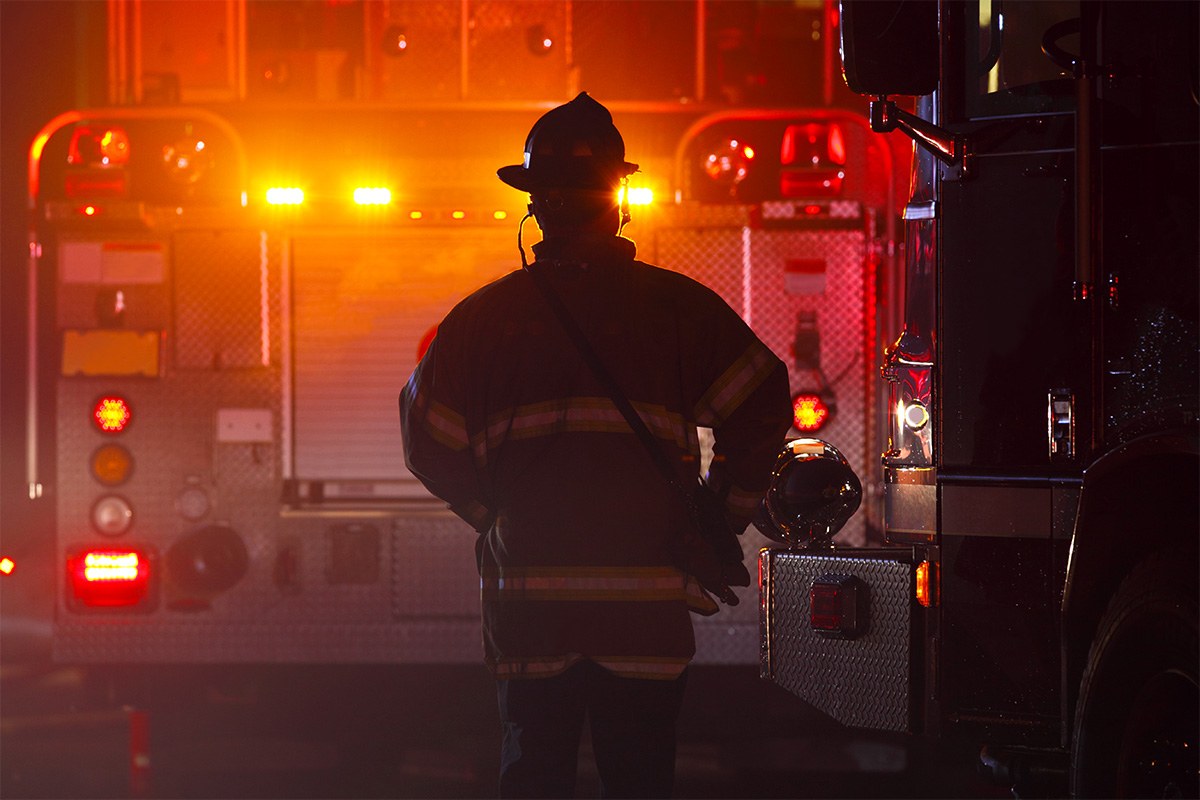Although the idea of a career in fire science equals becoming a firefighter for many of us, the field of fire science extends well beyond the local firehouse. Earning a degree in fire science prepares you for a wide variety of opportunities in multiple industries, whether you have experience fighting fires or not.
If you are wondering how versatile your fire science degree will be, and how it translates to different careers, check out some of these options.
Fire Inspection
Fire inspectors use their knowledge of fire science, including how fires start and spread and the best ways to prevent them, to ensure that buildings are up to code. Analyzing the layout, materials and structures themselves is a critical step in ensuring there aren’t any hazards that could lead to fires. Fire inspectors also test alarms, sprinkler systems and other fire management tools to ensure they are in good working order.
Although fire inspectors must have expertise in fire itself, they are also knowledgeable in building design and codes, human psychology, and public administration, as they are often charged with communicating fire safety plans and standards to the community. Some fire inspectors also serve as fire investigators.
Certifications in fire inspection, such as the NFPA Certified Fire Inspector I, are optional, but employers such as municipal governments, fire departments, insurance companies and health care organizations often require inspectors to have experience in firefighting. According to the Bureau of Labor Statistics, the median annual salary for fire inspectors in May 2018 was $60,200. The BLS also projects fire inspectors in general to grow in employment by 8% from 2018-2028, with forest fire inspectors and prevention specialists expected to grow by 24%.
Fire Investigation
Fire investigators do their work after a fire has occurred. Although their primary purpose is to determine whether a fire was the result of arson or other criminal activity, fire investigators look into every fire to determine its cause so it can be officially recorded for insurance and law enforcement purposes.
Fire investigators use their knowledge of fire science to determine where the fire started, whether any accelerants were used, the path flames, and any other information that may be pertinent to understanding what occurred and why. They look for evidence at the scene, take photographs, interview witnesses, and work closely with law enforcement when necessary to develop comprehensive reports about the cause of the fire. In some cases, fire investigators are required to testify in court regarding their findings.
A background as a firefighter can be helpful in this career, but some companies and fire departments also seek to hire investigators who have a relevant educational background. Like fire inspectors, fire investigators do not have to be licensed, and certification is optional. The BLS groups fire investigators and fire inspectors into one category, and together they earned a median annual salary of $62,510 in May 2018.
Fire Prevention
A key aspect of fire management is keeping fires from happening in the first place, and you can put your fire science degree to work providing education, communication, and support in the prevention of fires. For example, organizations like the U.S. Fire Administration create fire safety and prevention awareness programs and work with government agencies, emergency response organizations, the media, and other stakeholders to spread the word.
Working in fire prevention might mean researching new methods of fire suppression or putting your knowledge and experience to use in educating others through communication materials or trainings in businesses or schools. Specific job descriptions and salaries vary in this field, but there is a wealth of opportunities within all areas of interest.
Related: Fire Resilience Planning a Key Aspect of the Fire Service
Emergency Management
Emergency management is an important career field. As we face more disasters, both natural and manmade, the need to develop preparation, response and recovery plans is increasing. Emergency management encompasses many agencies and functions, including fire departments, and you can put your knowledge of fire science to work by helping create plans and leading responses to emergencies.
Some roles within emergency management require experience in the field, as well as experience in disaster planning or public administration, but your fire science degree will be useful in creating effective plans to mitigate losses due to disasters. The BLS reported a median annual salary of $74,420 for emergency management directors in May 2018.
Related: Hurricane Preparedness: How Fire Departments Prepare for the Worst
Get Started With Your Fire Science Degree
Opting to earn your degree in fire science not only sets you up for success within a firehouse, but it can also put you in a position to explore other exciting career options as well. If you have any interest in fighting fires, preventing fires, emergency management or public administration, a degree in fire science is a good place to start. Just ask these fire science students and alumni from Columbia Southern University:
- Fire Chief and Alumnus Robert Jackson Awarded VFW Gold Medal
- Helmet Is One of Many Hats for Nina Taylor: Mother, Fire Officer, Teacher and Businesswoman
- Military Spotlight: Knight Pens Book on Military Leadership
- Pioneering Missouri Female Firefighter Earns National Scholarship
To learn more about the FESHE-recognized online education options at Columbia Southern University, view the video below featuring CSU fire and emergency services curriculum lead faculty Chief Jake Rhoades and Peter Matthews from Firehouse.
To get started today, visit ColumbiaSouthern.edu/Fire.



